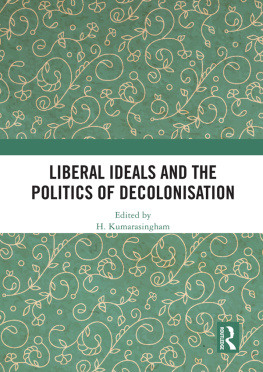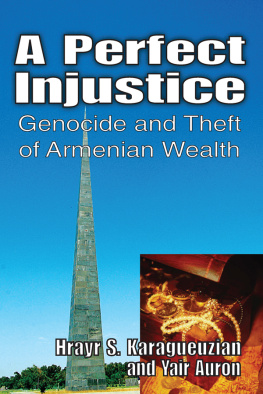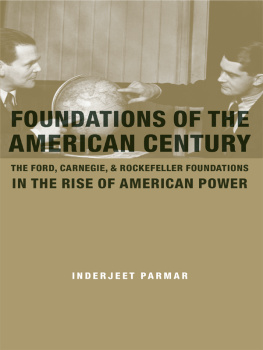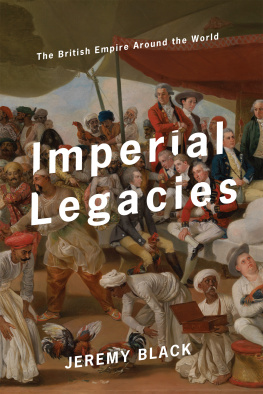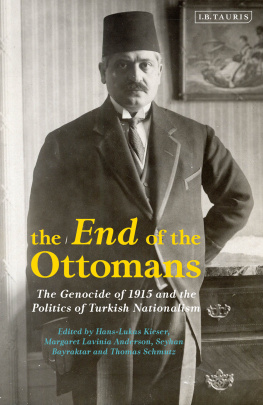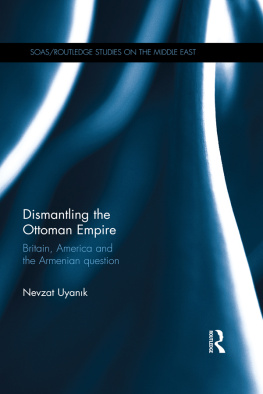Michelle Tusan is Professor of History at the University of Nevada, Las Vegas. She received her PhD from University of California, Berkeley and has previously taught at Stanford University. She is the author of Smyrna's Ashes: Humanitarianism, Genocide and the Birth of the Middle East and Women Making News: Gender and Journalism in Modern Britain.
This intelligent, thoughtful and empirically rich study investigates the role that British imperialists played in shaping humanitarian discourse around the Armenian Genocide, its genealogy and its aftermath. Anyone who wants to understand the origins and implications of human rights justice in the pre-World War I era should begin here.
Antoinette Burton, Professor of History and Bastian Professor of Global and Transnational Studies, University of Illinois
Michelle Tusan provides a groundbreaking account of the British policy towards the Armenian Genocide. By relying on the voices of well-known and lesser known Britons, Tusan demonstrates in a fascinating manner the ways in which the British state and society responded to the different phases of violence inflicted upon the Armenians of the Ottoman Empire. In this unprecedented study Tusan highlights the role that the British played in shaping the global humanitarian response to mass violence in the twentieth century. From Gladstonian idealism to Imperial realpolitik, the book tells the story of the failure of a global hegemonic power to uphold its moral duty to prosecute the architects of one of the classical cases of genocides in the modern period. This book provides important background as to how the international community in the twentieth and the twenty-first century failed/fails to stop genocides through humanitarian and legal intervention.
Bedross Der Matossian, Associate Professor of History, University of Nebraska-Lincoln
THE BRITISH
EMPIRE AND
THE ARMENIAN
GENOCIDE
Humanitarianism and Imperial Politics from
Gladstone to Churchill
M ICHELLE T USAN

Published in 2017 by
I.B.Tauris & Co. Ltd
London New York
www.ibtauris.com
Copyright 2017 Michelle Tusan
The right of Michelle Tusan to be identified as the author of this work has been asserted by the author in accordance with the Copyright, Designs and Patents Act 1988.
All rights reserved. Except for brief quotations in a review, this book, or any part thereof, may not be reproduced, stored in or introduced into a retrieval system, or transmitted, in any form or by any means, electronic, mechanical, photocopying, recording or otherwise, without the prior written permission of the publisher.
Every attempt has been made to gain permission for the use of the images in this book.
Any omissions will be rectified in future editions.
References to websites were correct at the time of writing.
International Library of Twentieth Century History 100
ISBN: 978 1 78453 385 4
eISBN: 978 1 78672 123 5
ePDF: 978 1 78673 123 4
A full CIP record for this book is available from the British Library
A full CIP record is available from the Library of Congress
Library of Congress Catalog Card Number: available
This publication was made possible
by a generous grant from
the Dolores Zohrab Liebmann Fund
CONTENTS
LIST OF FIGURES
Gladstone and Britannia defending civilians from massacre. Punch, September 26, 1896
Parody of Gladstone's advocacy work on behalf of Bulgaria. Punch, February 24, 1877
Portrait of Lady Strangford
Historical map of eastern Anatolia
Caricature of Sultan Abdul Hamid II as the Assassin. Punch, September 26, 1896
1895 map of the Armenian massacres
The Man for the Job. Punch, September 12, 1896
Deeds not Words. Punch, June 15, 1895
A Day Over the Armenian Covers. Punch, October 10, 1896
Adana's ruined Armenian Quarter
The streets of Adana after the massacres
King Leopold II and the Sultan Abdul Hamid II. Punch, May 31, 1905
Portrait of James Bryce
Village-by-village map of the massacres from the Armenian Blue Book
Refugees as depicted by Near East Relief
Carved names and dates of orphans arrivals in the stone
Caring for refugees
Col. Rawlinson's Ezeroom Prison
Col. Rawlinson and his men
CHART
1890s Media coverage of the Armenian massacres
ACKNOWLEDGEMENTS
This book was written during a sabbatical leave from UNLV. Research was funded by the Dolores Zohrab Liebmann Foundation, a Huntington Library Mayers Fellowship, the Dean of the College of Liberal Arts, and a Faculty Opportunity Award. I had the opportunity to present parts of the manuscript in talks given at Stanford University, the University of California, Berkeley, the University of Nebraska, Lincoln, the Polonsky Academy in Jerusalem and the University of Texas, Austin as well as in papers given at the North American Conference on British Studies, North American Victorian Studies Association, the International Network of Genocide Scholars conference and the University of Chicago Crisis of Humanitarianism conference. I am grateful to the friends and colleagues who took the time to read the manuscript and offer good advice and encouragement, most especially Stephanie Barczewski, Stefan Ihrig, and Bedross Der Matossian. A?da Boudjikanian and Adom H. Boudjikanian provided the photo and translation of the image of the Jerusalem refugee wall. Priscilla Finley at Lied Library was an invaluable resource and helped to make my research easier. At I.B.Tauris, thanks go to Lester Crook for believing in the project and seeing it through to the end as well as Joanna Godfrey and Sarah Thomas for their kind assistance.
I had anticipated finishing the book in time for the 100 year anniversary of the Armenian Genocide in 2015 but my mother's long illness and eventual death from cancer slowed the push to treat this like any other project. It also ended up putting the sad stories that fill the pages of this book in a stark new light. I now view them through the eyes of my husband, Scott Muelrath, my sister, Christina Tusan, and my children Nicholas and Sophia, along with my dad who made me see why this book should be written. The perspective from the other side of the anniversary does not make the history recounted and interpreted in the following pages any less poignant. My grandmother survived the genocide, which happened when she was a very little girl, not much younger than my daughter is now. She never spoke of it, and her own daughter, my mother, considered it part of a history now long past. This book is for the generation who remembers for those who cannot.
INTRODUCTION
THE CRIME OF GENOCIDE
On the night of April 24, 1915, more than 200 intellectuals, community and religious leaders were rounded up in Constantinople by the Ottoman imperial government. It was the last time many of them would be seen alive. That night marked the beginning of what is today called the Armenian Genocide and would result in the deaths of well over one million civilians in the midst of World War I (191418). This book is a history of the first attempt to intervene on behalf of genocide victims and prosecute those responsible. Why this failed and why that matters is at the heart of the story that follows.
In 1919, Britain indicted the Ottoman Empire for what the international community labeled a crime against humanity. This act gave intervention into the affairs of other states on humanitarian grounds both a legal and moral cause. It left an important legacy and remains a guiding principle in modern attempts to stop genocide and prosecute war crimes.
Next page

